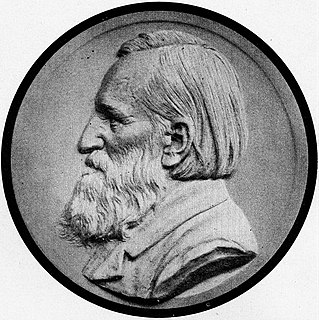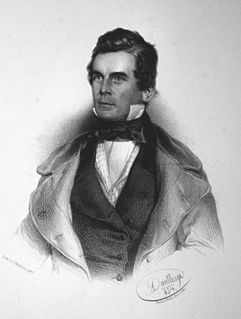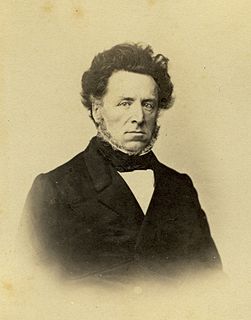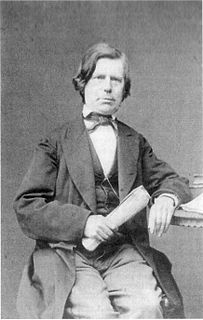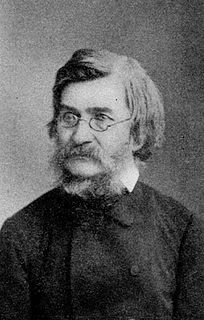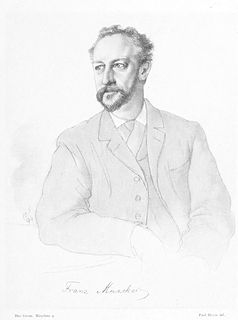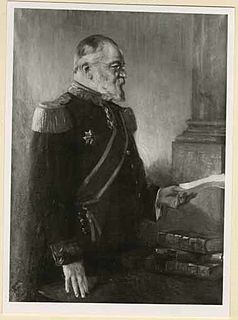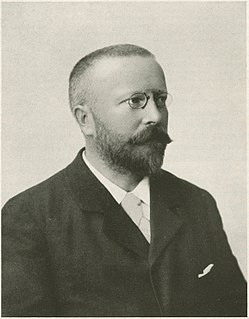Ludwig Lemcke (25 December 1816 in Brandenburg an der Havel – 21 September 1884 in Giessen) was a German Romance philologist and literary historian.

Brandenburg an der Havel is a town in Brandenburg, Germany, which served as the capital of the Margraviate of Brandenburg until replaced by Berlin in 1417.
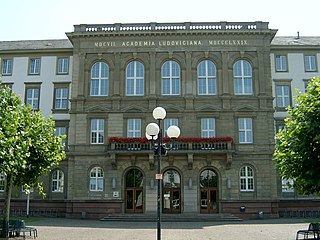
Giessen, spelled Gießen in German (German pronunciation: [ˈɡiːsn̩]], is a town in the German federal state of Hesse, capital of both the district of Giessen and the administrative region of Giessen. The population is approximately 86,000, with roughly 24,000 university students.
Romance studies is an academic discipline that covers the study of the languages, literatures, and cultures of areas that speak a Romance language. Romance studies departments usually include the study of Spanish, French, Italian, and Portuguese. Additional languages of study include Romanian and Catalan, on one hand, and culture, history, and politics on the other hand.
He studied history, philology and languages at the University of Berlin, and from 1841 worked as a private scholar, and later as a schoolteacher, in Braunschweig. In 1862 he succeeded Adolf Ebert as an associate professor of modern languages and Western literature at the University of Marburg. In 1865 he attained a full professorship, and two years later, relocated as a professor to the University of Giessen. In 1873/74 he served as university rector. [1] [2]
Philology is the study of language in oral and written historical sources; it is the intersection between textual criticism, literary criticism, history, and linguistics. Philology is more commonly defined as the study of literary texts as well as oral and written records, the establishment of their authenticity and their original form, and the determination of their meaning. A person who pursues this kind of study is known as a philologist.

Braunschweig, also called Brunswick in English, is a city in Lower Saxony, Germany, north of the Harz mountains at the farthest navigable point of the Oker River which connects it to the North Sea via the Aller and Weser Rivers. In 2016, it had a population of 250,704.

Georg Karl Wilhelm Adolf Ebert was a Romance philologist and literary historian. He was an author of literary studies as well as a publisher of periodicals, including the [[Jahrbuch für Romanische und Englische Literatur].
He was editor of the periodical, Jahrbuch für Romanische und Englische Literatur ("Yearbook of Romance and English Literature"), and the author of several articles in the Allgemeine Deutsche Biographie . [3]
The Jahrbuch für Romanische und Englische Literatur was an annual publication containing articles on literature in the Romance and English languages. The periodical was founded and edited by Adolf Ebert and Ferdinand Wolf.
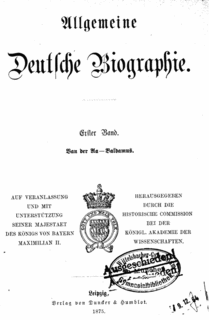
Allgemeine Deutsche Biographie is one of the most important and most comprehensive biographical reference works in the German language.



